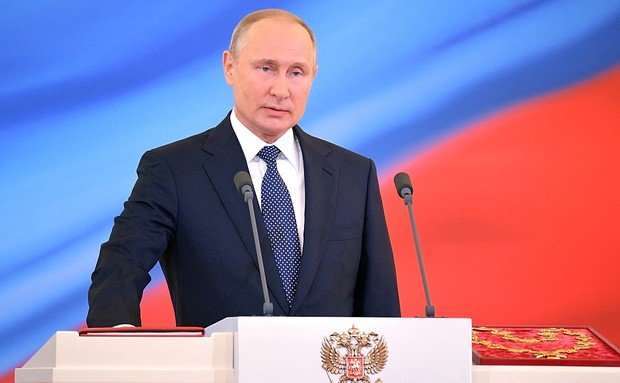New economic initiatives to slow down Russia’s GDP growth
While the government is working hard on implementing economic goals set by President Putin in May, some of the measures may constrain broader economic development. The proposed tax hike designed to fund the presidential initiatives is likely to decelerate the growth of Russia's gross domestic product.
Russian economic growth will slow in 2019, says Nasdaq.com citing an unnamed government source. The Ministry of Economic Development has reviewed its forecast due to a planned tax rise, which is expected to spur inflation and cut back real wages, and amid the Central Bank's tight monetary policy.
According to preliminary estimates, Russia has to spend at least extra eight trillion rubles ($126,7 billion) over six years to meet the economic goals set by President Putin in his May decrees. In order to attract additional funds, the government has proposed to raise value added tax (VAT) from 18% to 20% from 2019. If the proposal is implemented, the budget can receive at least additional 600 billion rubles a year.
In June, the Central Bank announced that key interest rate would stay unchanged amid unfavourable economic conditions and warned that higher VAT would cause an inflation increase. ''The acceleration of inflation will affect the incomes of the population, the consumer spending. We see a negative effect, which will be especially felt in the first half of the (next) year,'' the government source said.

In the second half of 2017, the Ministry of Economic Development published its forecast of 2,1% GDP growth in 2018 and 2,2% in 2019. Now the ministry has cut the GDP expectations to 1,9% growth this year and 1,4% in 2019, claims the source, which is familiar with the new set of forecasts. Besides, the ministry expects the Russian ruble to average around 61 versus the US dollar this year, while in 2019 the currency will weaken to an average of 63-64. The average price of Urals is seen at $63,4 per barrel in 2019, gradually declining to $53,5 by 2024.
According to the revised forecast, annual inflation will amount to 2,1% in June and reach 2,9-3,1% by the end of the year. In 2019, inflation will accelerate to over 4%. Along with a slowdown in economic activity, accelerating inflation will cause a decrease in real wages of around 1% in 2019. However, the ministry expects that the economy will start to recover after the state increases investment in infrastructure, so GDP will rise by more than 2% in 2020 and by around 3% in 2021. Capital outflow is meant to total $25 billion in 2018 and decline gradually towards zero by 2024. The new forecasts are yet to be approved by other ministries, the source claimed.